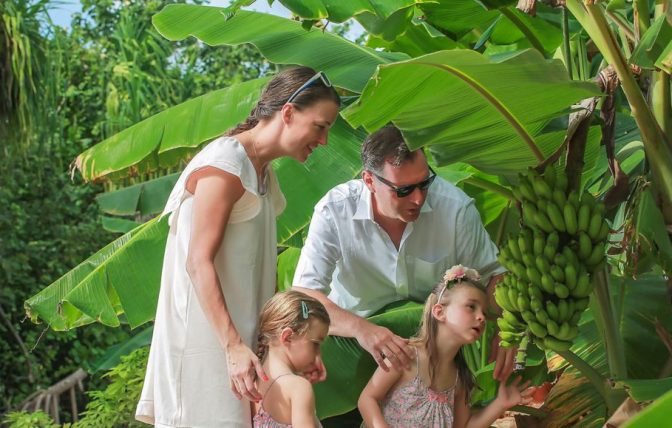


Sustainable practices and environment-friendly alternatives are becoming increasingly commonplace in the Maldivian hospitality industry. One of the most secluded island sanctuaries in the country, Hideaway Beach Resort & Spa has been implementing a number of policies in the spirit of driving forward environment conservation.
At Hideaway Beach, the resort’s green policies and practices aim to minimize the impact on its surroundings and help preserve the beautiful and delicate ecosystem. Among these, Hideaway has now implemented buying freshly caught fish from the local fishermen, offering drinkable water from its water bottling plant and in-house grown products from its vegetable garden, planting new trees, and using recycled plants to create beautiful crafts.

The Maldives has always relied on the ocean, making fishing an intrinsic part of the Maldivian identity. Local fishermen still use the traditional and sustainable pole and line method to catch fish. To ensure marine biodiversity and conservation, Maldivian law protects several species of fish, such as sea turtles and sharks.
Every week local fishermen from nearby islands come to Hideaway to deliver and sell their catch to the resort. This includes live lobsters, reef fish, red snappers, and tuna. Caught following sustainable fishing practices, the fish is served in all the restaurants of the resort. Sustainable fishing not only protects and preserves marine biodiversity, but it also supports Maldivians’ livelihood.

To help fight against single-use plastic water bottles, a reverse osmosis water bottling plant supplies all the island’s needs. The water processing plant delivers pure still or sparkling water in refillable glass bottles. The plant is scrupulously maintained, with the bottles themselves sterilized in a special machine between each use. With an average of 600 bottles a day refilled for consumption, this is an environmentally sustainable solution to stay hydrated at Hideaway.
As part of the fight against single-use plastics, the resort now only uses paper trays and straws.

The vegetable garden at Hideaway encloses developed cultivated areas where both fruits and vegetables are being planted and grown. The vegetable garden provides the kitchens with an abundant supply of fresh fruits and vegetables every day. Over 20 different varieties are grown on-site, from sweet potatoes to watermelons to chillies and zucchini. This ensures that all the restaurants offer healthy, nutritious and fresh produce, without having to import such ingredients and helping to minimise the impact on the environment.
Guests can join the resort’s Nature & Vegetation Exploration tour to understand how they manage to grow fruits and vegetables on a remote island in the Indian Ocean and how this vegetation helps preserve and respect the environment.

In the cultivated areas around the resort, many woody and non-woody plants grow wild. Some of these plants are cut down, to assist with the cultivated areas. These provide a variety of resource materials for the crafts Hideaway uses in the day-to-day operations: indigenous decors, centerpieces, crafts for guests – such as painted dried coconuts, providing excellent souvenirs to bring home for family and friends.
Furthermore, the resort’s tree planting activity, available for both adults and children at Hideaway, helps maintain the luscious vegetation of the island. Tree planting has also landscaping and romantic purposes – i.e. leaving a lasting memory of your stay in paradise!
For more information about Hideaway Beach Resort & Spa, visit https://www.hideawaybeachmaldives.com/